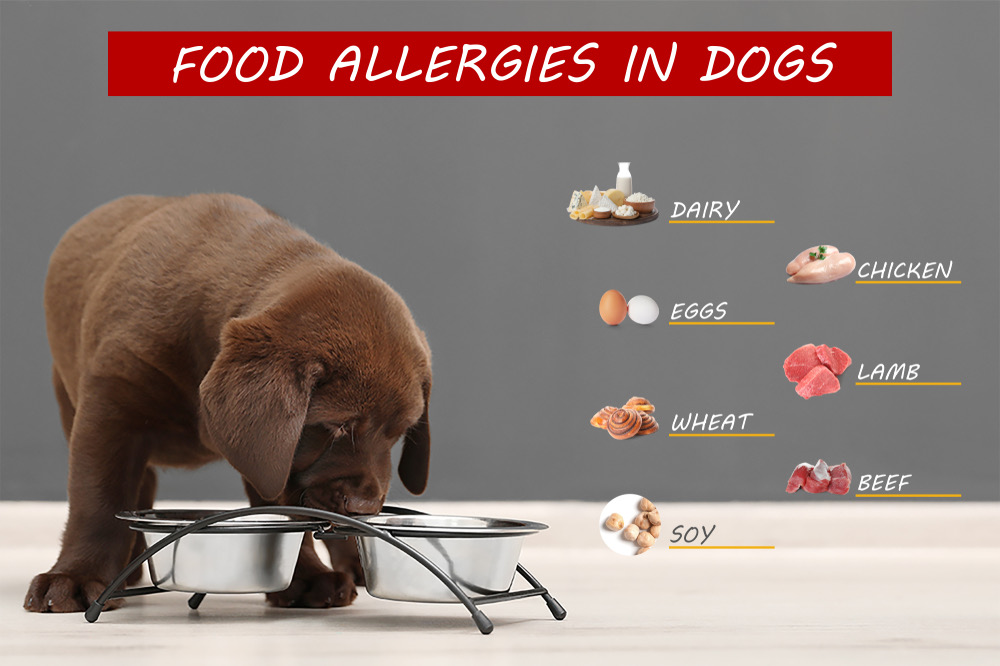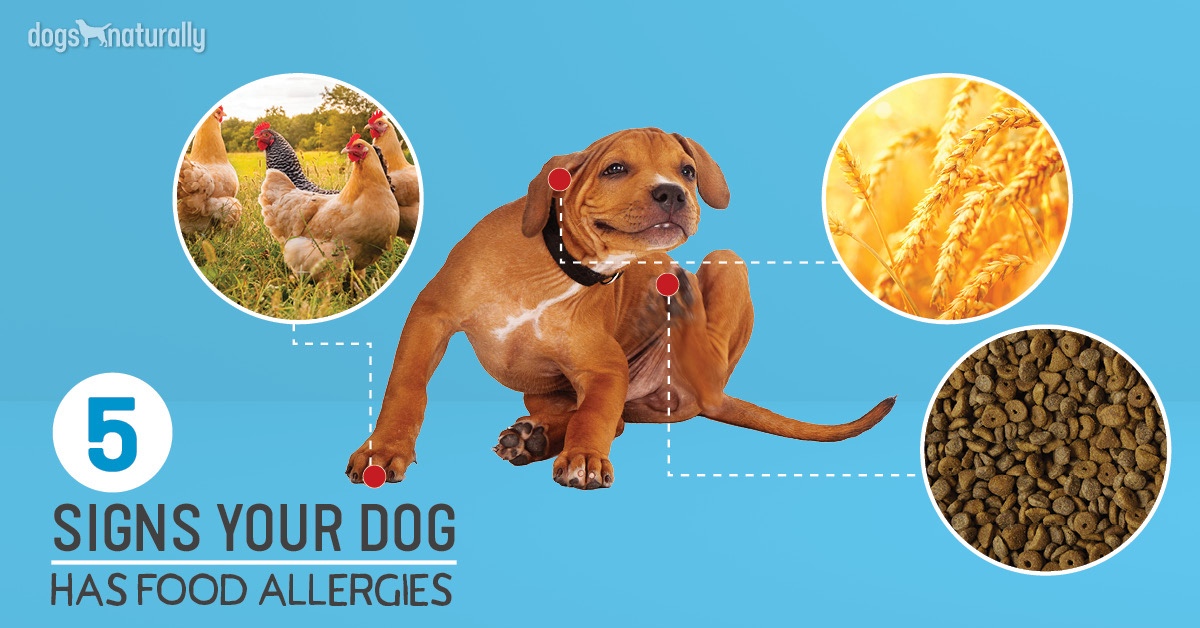Food allergies can affect not just humans, but our beloved furry friends as well. Dogs can develop allergies to certain foods, causing a range of symptoms that can negatively impact their health and overall well-being. In this article, we will explore the most common food allergies in dogs, how to recognize the signs, and what steps you can take to manage and treat these allergies.
Common Food Allergens in Dogs
The most common food allergens in dogs are proteins, particularly those from dairy, beef, chicken, chicken eggs, soy, or wheat gluten. These proteins can trigger an immune system response in sensitive dogs, leading to allergic reactions. Other less common allergens include soy, corn, egg, pork, fish, and rice.

Credit: www.ovrs.com
Signs and Symptoms
It is important to be able to recognize the signs of food allergies in your dog. Common symptoms include smelly skin due to yeast infection, changes to the skin and coat, including hair loss, recurring ear infections, and diarrhea or soft stools. In some cases, dogs may develop red or itchy skin, rashes, fur loss, hives, and even wounds or “hot spots” from excessive licking or chewing.

Credit: www.dogsnaturallymagazine.com
Diagnosis and Treatment
If you suspect your dog has a food allergy, it is best to consult with your veterinarian for an accurate diagnosis. Your vet may recommend an elimination diet, where potential allergens are removed from your dog’s diet to identify the specific trigger. Some prescription foods that your vet may suggest for dogs with food sensitivities include Canine Hydrolyzed Protein Small Dog Dry Dog Food, Hill’s Prescription Diet® d/d Canine Potato & Venison Formula, and Purina Pro Plan FOCUS Adult Sensitive Skin & Stomach Salmon & Rice Formula.
Prevention and Management
Once you have identified the allergen, the best course of action is to eliminate that specific food from your dog’s diet. This may require reading ingredient labels carefully and avoiding any foods that contain the allergen. Additionally, regular grooming and bathing can help alleviate itching and discomfort. If the allergen is present in your dog’s environment, such as pollen or dust mites, you may need to take steps to reduce exposure or consult with your vet for further guidance.
Frequently Asked Questions On Food Allergies In Dogs
What Is The Most Common Food Allergy In Dogs?
The most common food allergy in dogs is to proteins, especially those from dairy, beef, chicken, chicken eggs, soy, or wheat gluten. These allergens can cause symptoms such as itching, frequent skin and ear infections, and chewing/licking of the feet.
It is important to identify and avoid these allergens to keep your dog healthy.
How Do I Know If My Dog Is Allergic To His Food?
If your dog shows symptoms such as smelly skin, coat changes, recurring ear infections, or diarrhea, it may have a food allergy.
What Are The Symptoms Of Chicken Allergy In Dogs?
Symptoms of chicken allergy in dogs include red, itchy skin, rashes, fur loss, hives, and skin infections.
What Is The Best Thing For A Dog With Food Allergies?
Prescription hypoallergenic foods recommended for dogs with food allergies include Canine Hydrolyzed Protein, Hill’s d/d Canine Potato & Venison, and Purina Pro Plan Sensitive Skin & Stomach formula.
Conclusion
Food allergies in dogs can cause significant discomfort and health issues. By understanding the common food allergens and knowing the signs and symptoms, you can take proactive steps to manage and treat these allergies in your furry friend. Remember to consult with your veterinarian for an accurate diagnosis and guidance on the best course of action for your dog’s specific needs. With proper care and attention, you can help your beloved pet live a healthy and happy life.

